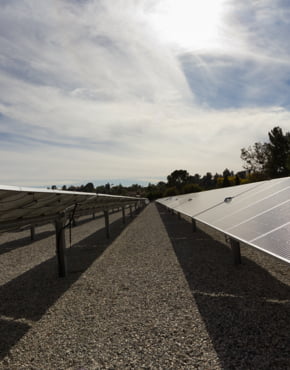Bond would provide $3.8 billion for projects to increase safety, reliability of California water supplies, flood protection
Metropolitan Water District’s Board of Directors voted today to support a $10 billion bond measure on the November ballot that would fund projects to help the state adapt to climate change, including $3.8 billion for projects to protect the availability and quality of water supplies and protect communities against drought and flooding.
Proposition 4, the Safe Drinking Water, Wildfire Prevention, Drought Preparedness, and Clean Air Bond Act of 2024, also known as the Climate Bond, was placed on the Nov. 4 ballot earlier this year by the state legislature.
“Climate change is the driving factor in how our board is planning for the future,” board Chair Adán Ortega, Jr. said. “As our climate gets hotter and drier, we cannot ensure safe and reliable water supplies for the next generation without significant investments in new local supplies, storage and flexible conveyance systems. This bond will support some of those investments.”
The bond includes $610 million for water quality and safe drinking water, $550 million for flood protection, $480 million for dam safety, $386 million for recycling and desalination projects, $386 million for groundwater management, and $75 million each for conservation, storage and regional conveyance. At least 40% of bond funds must be used to benefit vulnerable populations or disadvantaged communities, and at least 10% on severely disadvantaged communities.
“Each one of these amounts equate to potential funds water agencies can apply for to help advance critical projects and programs,” Interim General Manager Deven Upadhyay said. “For example, the funds for safe drinking water can help the monitoring and remediation of contaminants like PFAS and chromium- 6 in groundwater basins, which have posed significant concern for agencies within our service area.”
The bond also includes $1.5 billion for wildfire and forest resilience, $1.2 billion for sea level rise and coastal resilience, $1.2 billion to protect biodiversity, $700 million for park creation and outdoor access, $450 million for extreme heat mitigation, and $300 million for climate-resilient farming.
“Though not directly tied to water projects, this other funding also supports Metropolitan initiatives, priorities and programs to build a more resilient California,” Upadhyay continued. “For example, improving forest health can certainly benefit our watersheds. And developing climate-resilient farming will support our efforts with our Colorado River agricultural partners to increase water efficiency.”
As climate change increasingly challenges the region’s water supplies, Metropolitan is developing a new Climate Adaptation Master Plan for Water to guide the agency’s future decision making. The public is invited to learn more about this process and provide input at a public forum this Thursday.
The Metropolitan Water District of Southern California is a state-established cooperative that, along with its 26 cities and retail suppliers, provides water for 19 million people in six counties. The district imports water from the Colorado River and Northern California to supplement local supplies, and helps its members to develop increased water conservation, recycling, storage and other resource-management programs.
Media Contacts
